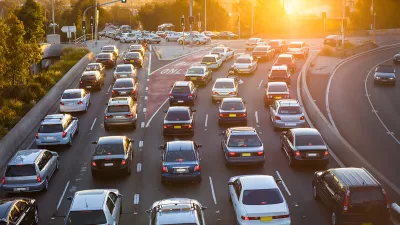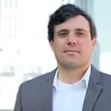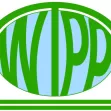Transport Policy

Breaking the Cycle of Automobile Dependency
Many current planning practices reinforce a cycle of increased automobile use, more automobile-oriented community redevelopment, and reduced mobility options. There are good reasons to break this pattern.
How Not To Measure Traffic Congestion, Redux Again
TomTom's annual traffic congestion rankings predictably generated horrified, self-pitying headlines about awful congestion in top-ranked cities. But there are big problems with their methodology.

Self-Fulfilling Automobile Dependency
Common planning practices create automobile-dependent communities where driving is convenient and other forms of travel are inefficient. It's time to recognize the value of transportation diversity.

Public Policies For Optimal Urban Development
What amount of expansion, population and vehicle densities, housing mix, and transport policies should growing cities aspire to achieve? This column summarizes my recent research that explores these, and related, issues.

Land for Vehicles or People?
Automobile-oriented planning requires that cities devote signifiant amounts of space to roads and parking—under many conditions each vehicle requires more land than is devoted to housing per capita.
Paradox: Congestion May Signify Better Accessibility and Economic Productivity
Although transport planners consider traffic congestion economically harmful, economic productivity tends to increase with congestion and decline with increased road supply. This paradox can be explained by more nuanced analysis of accessibility.
Meant to Deter, Utah's Bad Air Alerts Actually Increase Driving
Call it the law of unintended consequences. Alerts of "bad air days" that ask motorists in the Wasatch Front to reduce driving had the opposite effect, prompting some residents to drive away from lowlands to the mountains where air may be healthier.
Responding to Smart Growth Criticism
Critics claim that smart growth policies are ineffective at reducing vehicle travel and achieving intended to objectives. This column critiques their arguments.
Share Your Ideas for Evaluating Transport System Performance
Moving Ahead for Progress in the 21st Century (MAP-21), the new U.S. federal transportation law, has the following main goals: Safety Infrastructure condition Congestion reduction System reliability Freight movement and economic vitality Environmental sustainability Reduced project delivery delays
Optimal Transport Policy For An Uncertain Future
As I write this column (2 February) the U.S. House Transportation Committee is debating changes in H.R. 3864, the American Energy and Infrastructure Jobs Act, which will determine future federal transportation policy.
Yes, We Can Have a Healthy Environment and Economic Development: Reconciling Conflicting Planning Objectives
I am sorry to report that, Canada, my chosen country (I immigrated here in 1993), recently withdrew from the Kyoto Accord, which sets international climate change emission reduction targets. It’s worth noting that this decision was made...
The Value of Transportation Enhancements; Or, Are Walking and Cycling Really Transportation?
An important current policy debate concerns whether the next U.S. federal surface transportation reauthorization should require spending on “enhancements,” which finance projects such as walkways, bike paths, highway landscaping and historic preservation. This issue receives considerable attention, despite the fact that enhancements represent less than 2% of total federal surface transportation expenditures, because it raises questions about future transport priorities, particularly the role of walking and cycling. In other words, should non-motorized modes be considered real transportation.
New Report Evaluates Transportation Policies for Healthier Communities
Major study by the Partnership for Prevention identifies numerous ways to reduce air pollution, increase physical fitness and reduce traffic risk.
Lessons From NYC: Congestion Pricing
In April 2008, the NYS Assembly rejected NYC Mayor Bloomberg's congestion pricing proposal for Manhattan. A subsequent attempt to toll the free East & Harlem River bridges also failed. Bruce Schaller (NYC-DOT), involved in both efforts explains why
Accessibility, Mobility and Automobile Dependency
Let me wade into an ongoing debate among fellow Planetizen bloggers Samuel Staley and Michael Lewyn concerning the meanings of accessibility and mobility, and their implications for transportation and land use policy.
Healthy, Wealthy and Wise Transportation Policy
An important new book, Healthy, Equitable Transportation Policy: Recommendations and Research, and its summary report, The Transportation Prescription: Bold New Ideas for Healthy, Equitable Transportation Reform in America, were just published by the Convergence Partnership, a coalition that supports more rational and equitable health policy.
Smarter Transportation Economic Stimulation
We have just published a new report, "Smart Transportation Economic Stimulation: Infrastructure Investments That Support Strategic Planning Objectives Provide True Economic Development" which discusses factors to consider when evaluating transportation economic stimulation strategies.
Smart Economic Stimulation
Economic stimulation is an important issue these days. Let’s be smart when choosing economic stimulation strategies.
City of Costa Mesa
Licking County
Barrett Planning Group LLC
HUD's Office of Policy Development and Research
Mpact Transit + Community
HUD's Office of Policy Development and Research
Tufts University, Department of Urban and Environmental Policy & Planning
City of Universal City TX
ULI Northwest Arkansas
Urban Design for Planners 1: Software Tools
This six-course series explores essential urban design concepts using open source software and equips planners with the tools they need to participate fully in the urban design process.
Planning for Universal Design
Learn the tools for implementing Universal Design in planning regulations.
































